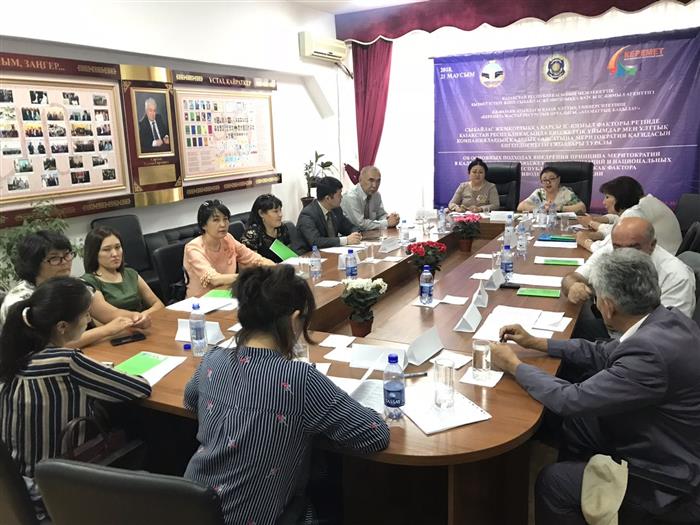- Main page
- News
On the main approaches to the implementation of the principle of meritocracy
6/22/2018
June 21, 2018 in the al-Farabi Kazakh National University Department of Theory and History of State and Law, Constitutional and Administrative Law in conjunction with the public reception "Civil Control" held a round table on the topic "On the basic approaches of implementing meritocracy principle in the human resources policy of budgetary organizations and national companies in Republic Kazakhstan as a factor in countering corruption".
The round table was attended by: leading scientists-lawyers of al-Farabi KazNU, KazNPU named after Abay, International University of Information Technologies, Eurasian Law Academy named after D.A. Kunaev, the NARXOZ University, the National Security Academy of the Republic of Kazakhstan and other universities, representatives of state bodies, national companies, public associations.
Nurpeisov Darkhan Kadyrbayevich, Doctor of Law, Professor, General Director of Legal Protect LLP, said that the issues of ensuring national security are one of the topical problems of any sovereign state. National security of the state is determined by the degree and state of protection of its national interests against real and potential threats. In conclusion, D.K. Nurpeisov He proposed his recommendations in the field of combating corruption.
As the Doctor of Law, Professor, the pro-rector of the D.A. Kunaev Eurasian law academy Alibaeva Gulnara Aitchanovna said the origins of corrupt practices, among other socio-economic factors, should be sought in the system of legal regulations, as well as in legal practice, that is, in law enforcement.
Following the results of the round table, the following recommendations were adopted: The participants of the roundtable consider it necessary to emphasize the importance of introducing the principle of meritocracy into the personnel policy for achieving the highest efficiency of state bodies, budget organizations and national companies, and its importance for combating corruption.
Department of Theory and History of State and Law, Constitutional and Administrative Law

